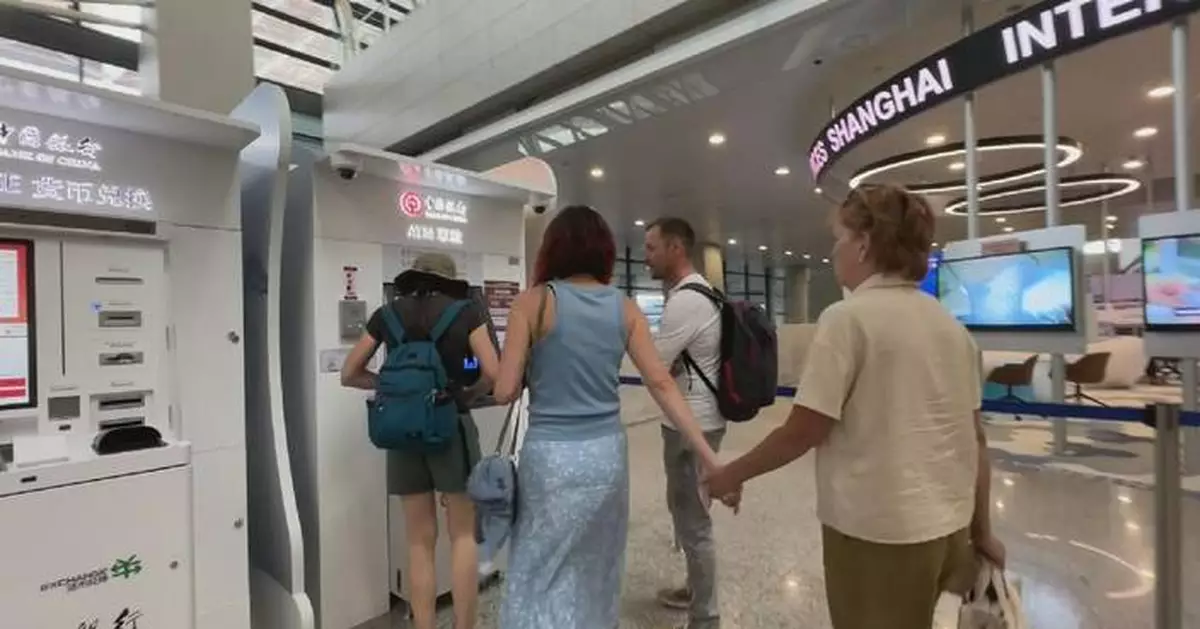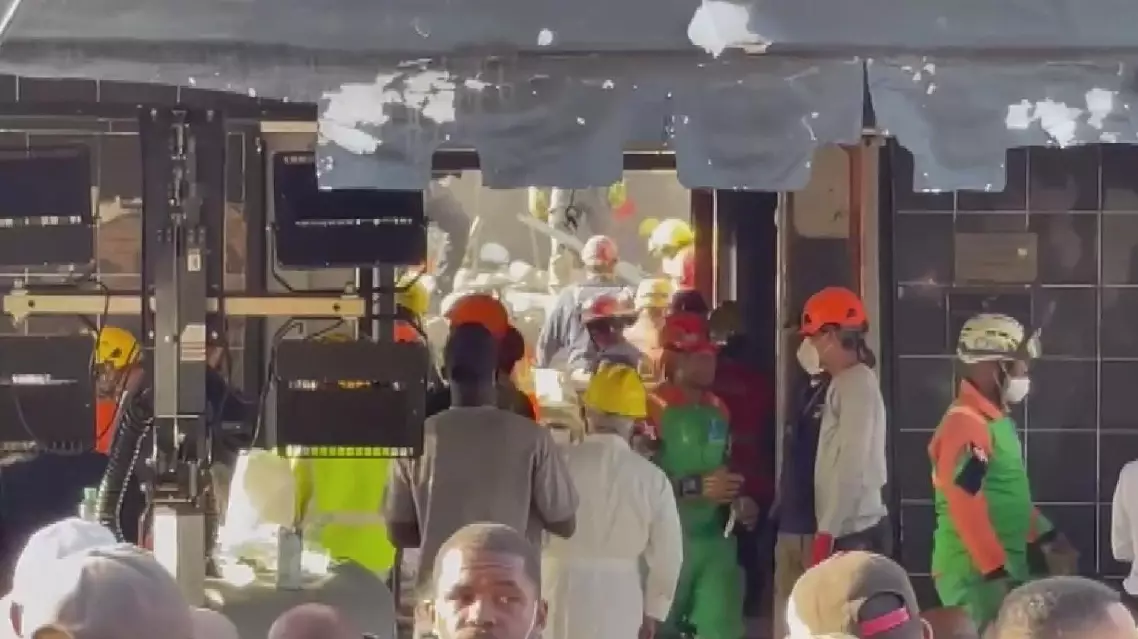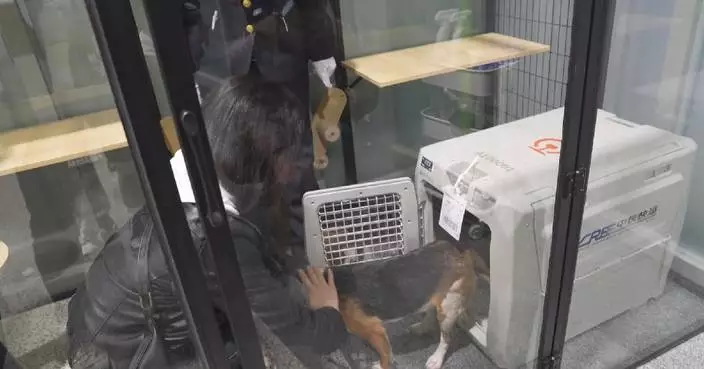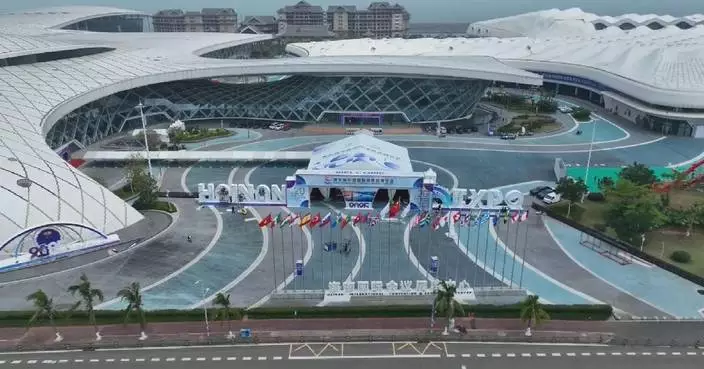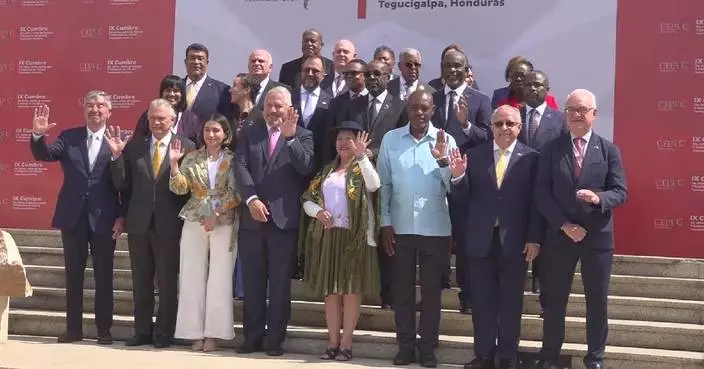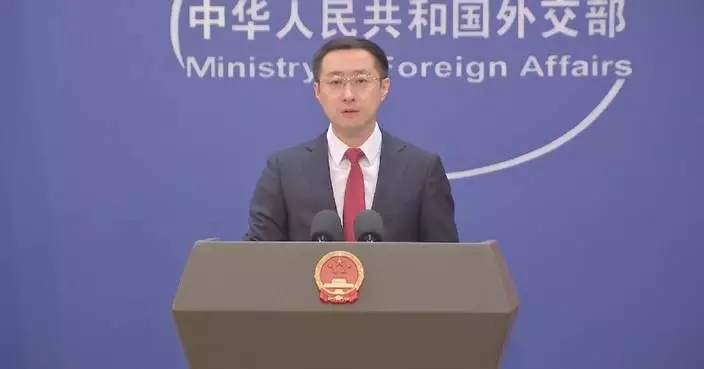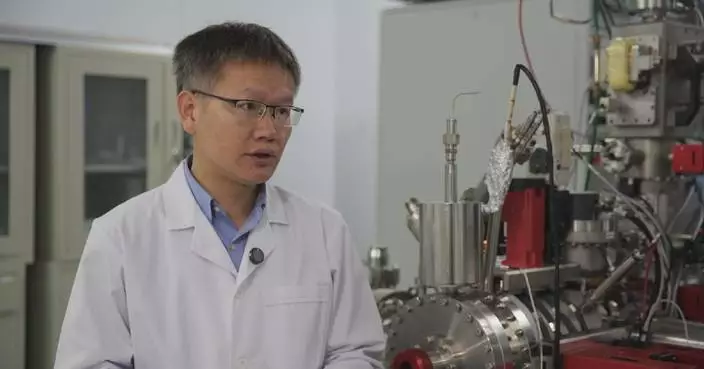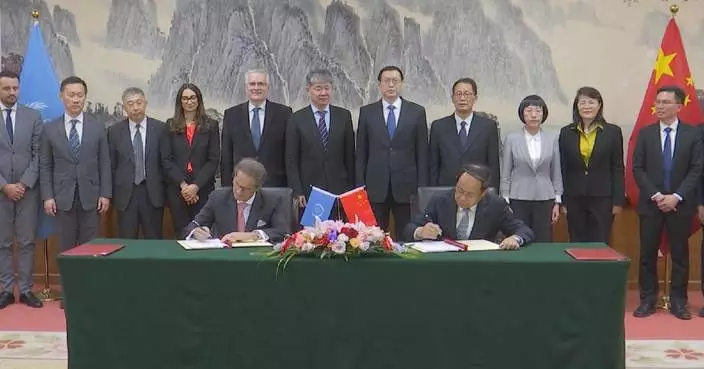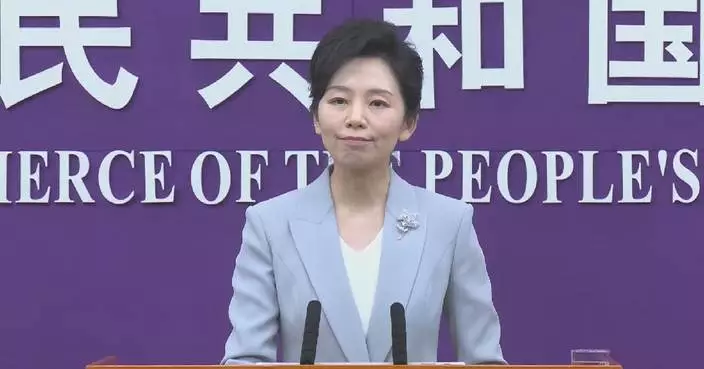Shanghai has been taking the lead in attracting international travel, continuously promoting payment facilitations for foreign currencies as China further extends its visa-free policies.
Official data showed that the number of foreign nationals entering China through ports in Shanghai in the first half of this year reached over 2.03 million, about 2.8 times that of the same period last year.
At Shanghai's Pudong International Airport, a brand new one-stop service station catering to international travelers run by the Bank of China was opened recently. The site offers a wide range of services, including currency exchanges, free phone calls, and transport arrangements.
The currency exchange machine at the service site only requires a passport with no additional fees and even offers small-denomination banknote exchanges.
"We need to change 300 euros to yuan. It's very easy, with a passport it's very easy," said a foreign traveler.
"That is to make it easier for them to make small payments, like buying a SIM card and taking a taxi," said Ouyang Xingyue, a staff member with the Bank of China Shanghai branch.
At present, there are 88 such user-friendly exchange machines in the city. Meanwhile, the number of ATMs accepting foreign bank cards in the city exceeds 9,000, and most of them also allow withdrawing small amounts of cash, according to the Shanghai branch of the People's Bank of China (PBOC), the country's central bank.
As of the end of June, Shanghai had over 70,000 foreign card point-of-sale terminals throughout the city, covering more than 50,000 merchants, according to the PBOC branch.
The number of foreign currency exchange service facilities has increased significantly compared to the beginning of the year, ranking among the top in the country.
This has excited many visitors, with over 1.9 million foreign card transactions made in the city during the first half of the year, totaling 3.5 billion yuan (about 481.83 million U.S. dollars), according to PBOC officials.
"All these things that I bought here you see are for my mom, and I did use my credit card. Everything works well, you just have to have money in your bank account, that's all," said a foreign traveler.
To encourage electronic payments, the central bank is working with payment giant Alipay to allow visitors to set up a local e-wallet that will allow mobile payments.
"I already downloaded the app for online payments. I think it's quite easy," said a foreign traveler.
"I'm going to pay everything with Alipay," said another.
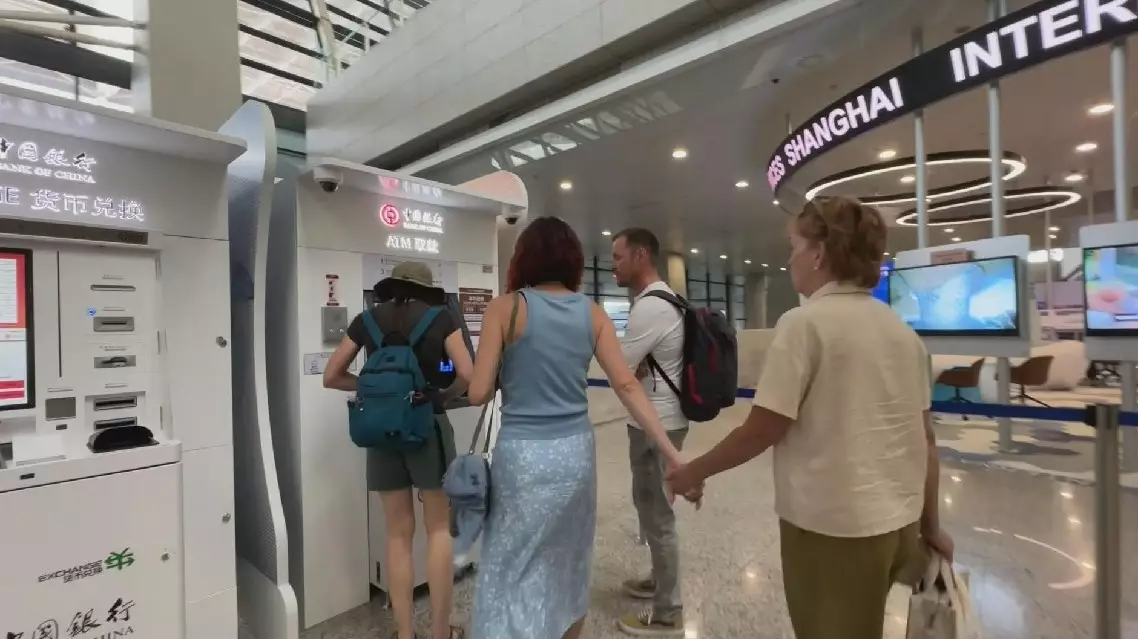
Shanghai takes lead in payment facilitation for foreign currencies
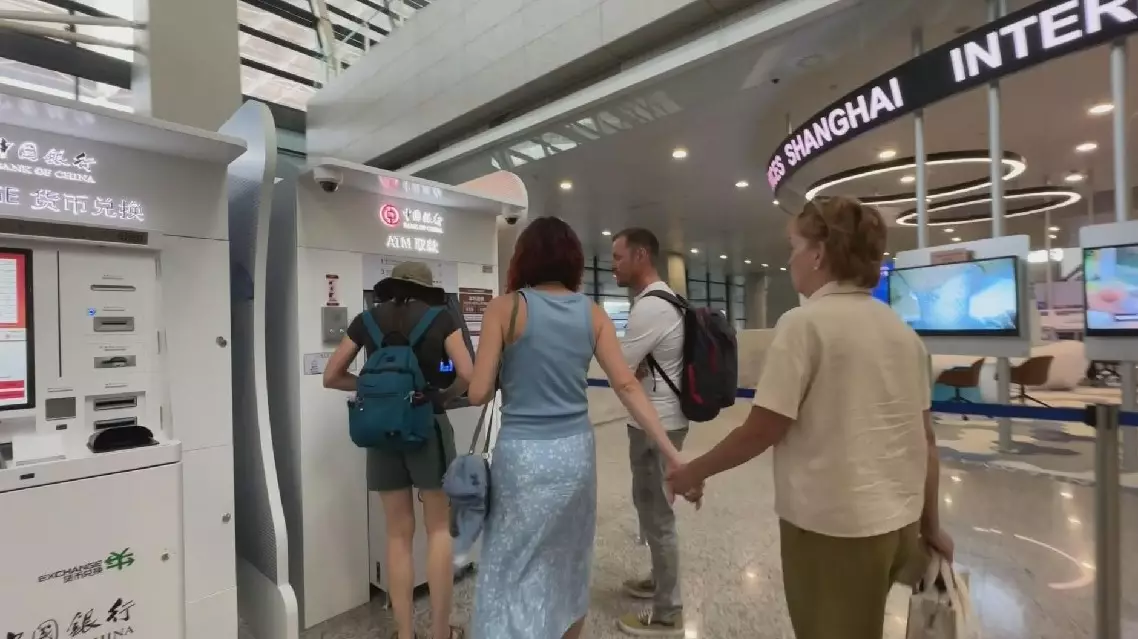
Shanghai takes lead in payment facilitation for foreign currencies


